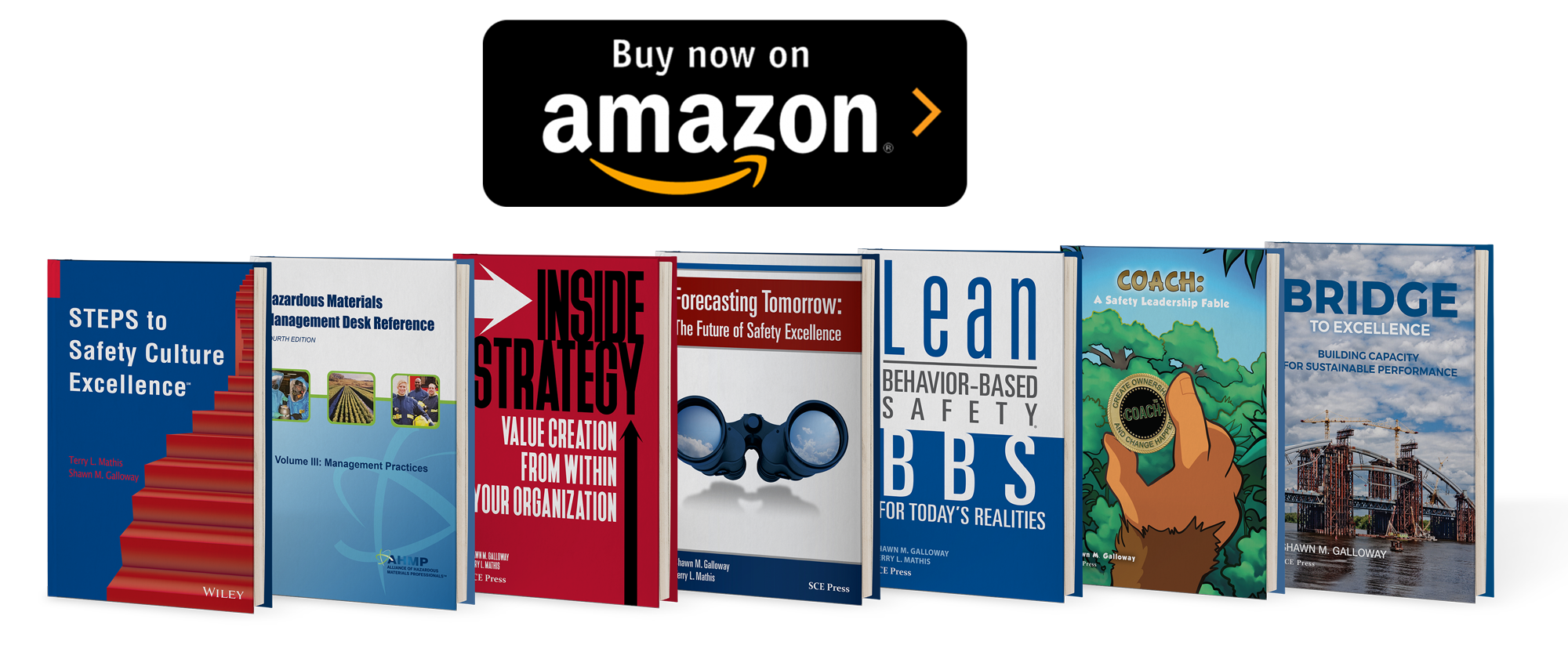BIC Alliance - September 2011
By: Shawn M. Galloway
Printable Version
Achieving and sustaining excellence in culture and performance can depend more on your style of approach rather than the approach itself. The five steps below have proven to be successful with the right perspective and motivation. Beginning any successful journey requires careful consideration of what the desirable outcome looks like.
1. Define and measure what safety excellence looks like, rather than what it doesn't. Negatively-defined measurements result in a strategy to work harder to fail less, and don't address the common fear of placing blame. For measurement to align and motivate, aim to measure improvement progress (in addition to lagging indicators) by positively defining what people have to do, mandatorily and discretionally. Without this, the ability to repeat successful performance is compromised, as the organization hasn't focused on what led to the outcome. Safety is no different than other areas of management. Undesirable results come from undesirable performance. For desirable performance sustainability, remember that people behave for a reason. The reason will eventually become a stronger leverage point than the behavior itself.
2. Define external support by observable improvement results, not completion. Ultimately, achieving excellence in safety is accomplished by targeting results. Do not let success be measured by simply completing a training or implementation. Ensure that the success of all external assistance is being measured by the achievement of desirable results.
3. Make the improvement strategy fit the site, rather than making the site fit the strategy. Implementing inflexible approaches is analogous to purchasing a vehicle with the hood welded shut. Ownership in the approach is often more valuable than its details. By nature, cultures work aggressively to maintain the status quo. Furthermore, they are far too complex for an external solution to guarantee sustainable value-add without input from those within.
4. Internalize Expertise for Sustainability. Any successful approach can eventually become an awkward fit to an organization, if it fails to evolve. Continuous improvement will ensure that approaches, measurements, and tools remain fresh and focus on new value-add. Dependency on an external consultant is not in the best interest of the organization. Contractually requiring constant consultant participation in safety falls into a grey area of ethics. Work aggressively to internalize the expertise and ability to own tools critical for performance sustainability. Far too many sites have struggled with performance during economic downturns due to inability to make royalty payments or complete required perpetual consulting visits.
5. Habit and culture are the efficiency and sustainability tools for excellence. Mental alertness is critical in safety; however, it is unrealistic and impractical to expect cognitive mental processes to control every action. When something becomes habitual, cultural such as precaution-taking, it is applied regardless of the environment. The organization's culture is your most effective sustainability mechanism.
Learning how to transformationally enhance your systems, performance, and culture from within is where true sustainability lies. Once results are recognized through internally-driven initiatives, ownership is created. Measurement then helps people recognize their contribution to the outcomes and creates passion for continuous improvement. This will not come alone from training or an externally-driven program.
 Shawn M. Galloway is the CEO of ProAct Safety and co-author of several bestselling books. As an award-winning consultant, adviser, leadership coach and keynote speaker, he has helped hundreds of organizations within every major industry to improve safety strategy, culture, leadership and engagement. He is also the host of the highly acclaimed weekly podcast series Safety Culture Excellence®.
Shawn M. Galloway is the CEO of ProAct Safety and co-author of several bestselling books. As an award-winning consultant, adviser, leadership coach and keynote speaker, he has helped hundreds of organizations within every major industry to improve safety strategy, culture, leadership and engagement. He is also the host of the highly acclaimed weekly podcast series Safety Culture Excellence®.
For more information, call (936) 273-8700 or email info@ProActSafety.com.
